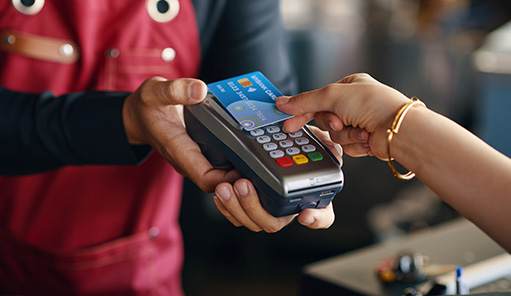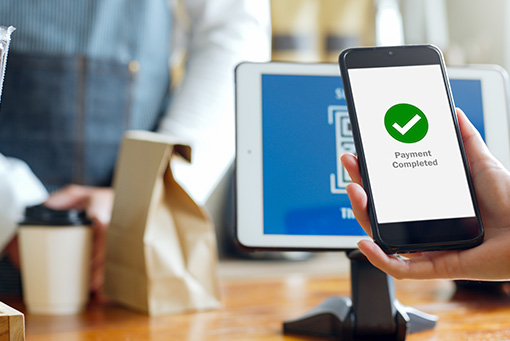
A smoother payment system for new assignees
“One of the most common complaints from people coming to China [for business] was that many shops had stopped accepting Visa,” explained the country manager for AGS China, Thomas Coupat. Shops, banks, and hotels rejected foreign bank cards because of the extra transaction costs involved, leaving new assignees in the lurch upon arrival.
To open a local bank account and obtain a local card, employees must have a permanent residence permit. But they can only collect the permit after they arrive in China, which can take some time. The process of opening up an account has also become stricter, and in the meantime, assignees must often resort to using cash or their international credit cards. Something they struggled to do until now.
Over the past few years – and expedited by the pandemic – China – has transitioned to digital payment methods. “As little as ten years ago, it was very much a cash society. You could buy a car or house in cash. But now people prefer to pay electronically,” said Coupat. In particular, payment via mobile apps like WeChat and Alipay has become commonplace.
But this switch did not automatically benefit international visitors. Initially mobile payments systems like Alipay and WeChat didn’t accept foreign cards either due to China’s strict financial and data control laws. Moreover, due to the digital transition, many businesses stopped accepting RMB cash, making it very difficult for international visitors to make payments at all.
Government interventions
Fortunately, strides have been made to make payments more straightforward. Over the last few years, Chinese authorities have used various methods to make payment services more accessible for international visitors.
Local banks and businesses have been encouraged accept a range of foreign cards. The government has also worked to ensure that cash is accepted everywhere, while ramping up the number of currency exchange facilities and ATMs accepting foreign cards. Major international payment processing networks such as Visa, Mastercard, and UnionPay are now widely accepted throughout China’s mainland.
The rise of mobile payment apps

Since last year, also thanks to the intervention of government, mobile payment apps like WeChat and Alipay now allow assignees to link their foreign credit cards, making international payments much more manageable.
“Culturally, mobile payment systems have become the norm,” said Coupat. Chinese businesses may even prefer them because they don’t come with transaction costs and are seen as easier and safer to use than traditional payment methods. Users link their bank cards to the apps, but card numbers and other sensitive information are anonymised in the process, making it more secure and more difficult to clone cards.
The apps, which also have an English interface available, no longer require the submission of mandatory personal identity information for transactions below 500 USD. The limit for a single payment transaction has also been increased from 1000 USD to 5000 USD.
Thanks to these changes, assignees in China can easily pay for accommodation, food, and all their necessities when settling in – paving the way to a comfortable and productive future.
Ready to relocate your employees to China? Get expert advice on immigration and moving requirements. Contact us today!














